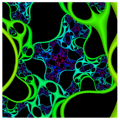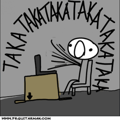Dreamweaver a publié une critique de Babel (Or the Necessity of Violence: an Arcane History of the Oxford Translators' Revolution) par R.F. Kuang
None
1 étoile
Terrible storytelling. 400+ pages before anything happened; before that it was all plodding tedium and navel-gazing.
Really, this is a set of essays pretending to be a story. There's an essay on colonialism, an essay on belonging, an essay on etymology; perhaps more. The reader is beat over the head repeatedly with the author's views, so that they get through to even the densest reader.
It's good to have this sort of thing existing in the world, I suppose, for the dunces in the back who don't get it. But I'm not sure they'll bother to read it. Indeed, I'm not sure who this book serves. Those who already get it don't need it.
I kept asking myself why I was still reading it, and I guess it boils down to social pressure because this is the first book in a new-to-me book club. Otherwise, it was too mediocre to …
Terrible storytelling. 400+ pages before anything happened; before that it was all plodding tedium and navel-gazing.
Really, this is a set of essays pretending to be a story. There's an essay on colonialism, an essay on belonging, an essay on etymology; perhaps more. The reader is beat over the head repeatedly with the author's views, so that they get through to even the densest reader.
It's good to have this sort of thing existing in the world, I suppose, for the dunces in the back who don't get it. But I'm not sure they'll bother to read it. Indeed, I'm not sure who this book serves. Those who already get it don't need it.
I kept asking myself why I was still reading it, and I guess it boils down to social pressure because this is the first book in a new-to-me book club. Otherwise, it was too mediocre to have bothered finishing.
Content warning: There are some upsetting scenes, just fyi. Abuse, death, and neglect feature heavily.
And then, after all that, there's no point to the story; no resolution.
What a waste of time. Don't bother with this one.






